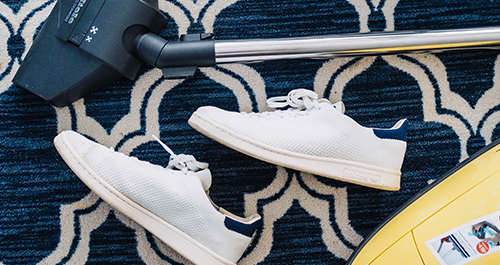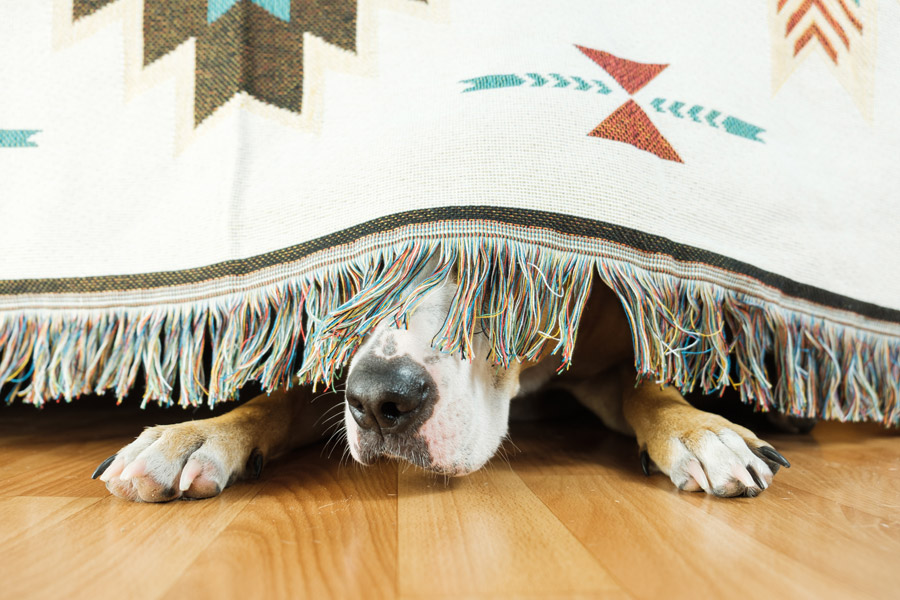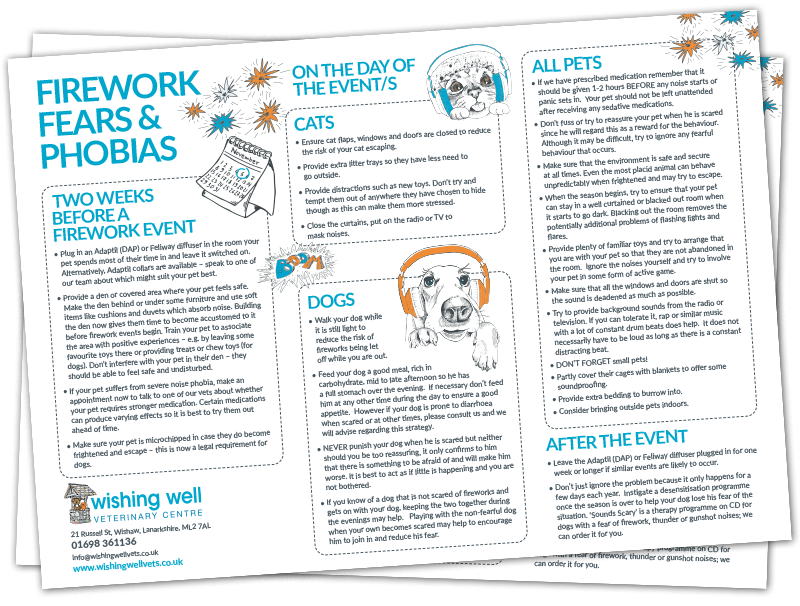Fleas – putting your family at risk all year round
Fleas are often considered to be a seasonal nuisance that are annoying for your pet, and annoying for you when you get nipped by one at home. But they’re a more serious problem than this, are a year-long threat, and can cause serious distress to your pet and spread disease.
Our centrally heated homes are the perfect year-round breeding ground for fleas who are attracted to the warm environment, so they aren’t just a spring and summer issue. Eggs can lay dormant in pet beds, carpets, rugs and upholstery for months before finding a host. In fact much of the life cycle of the flea takes place in the animal’s environment, not on the animal itself. Protecting your pet and your family requires this life-cycle to be broken by year round protection, and ideally by using a treatment that renders the eggs unable to hatch, so any that do transfer to the environment don’t start the cycle all over again.
Disease
Heavy infestations may lead to iron deficiency, anaemia and death, particularly in young animals. Diseases transmitted by fleas include pruritus (intense chronic itching), cat scratch disease, murine typhus, plague, flea typhus, tapeworm infection and flea bite allergies.
Why ad-hoc treatments just don’t work
By the time you notice fleas on your pet, they have already bitten their host and injected their saliva in to their blood stream and started laying eggs. In the same way, ticks transmit disease within the first 24 hours of being attached to a host, so once they are discovered and removed it’s too late to stop this transmission. The chances are that they will already have laid eggs before treatment, and these are sitting in a warm and cosy environment just waiting to hatch and infest your pet all over again. Even if you use a treatment that remains active for a month, it’s possible that some eggs and/or fleas will be lurking for longer than this period and will get to work once the treatment has worn off.
So, reactive and one-off treatments are both insufficient in preventing the spread of disease AND do nothing to prevent the initial attack or to break the life cycle. We recommend monthly treatments with an integrated product which not only kills any fleas that attack your pet, but also stops the development of eggs and therefore breaks the life-cycle. This approach will stop any initial infestation and protect your home, your pet and your family throughout the year.
Pet Heatlh Club
Quality care made easy
We’ve specifically developed the Pet Health Club to make it simple for you to look after your pet. Get access to annual flea and worming treatments and much more, all design to ensure your pet stays healthy.

Why ad-hoc treatments just don’t work
By the time you notice fleas on your pet, they have already bitten their host and injected their saliva in to their blood stream and started laying eggs. In the same way, ticks transmit disease within the first 24 hours of being attached to a host, so once they are discovered and removed it’s too late to stop this transmission. The chances are that they will already have laid eggs before treatment, and these are sitting in a warm and cosy environment just waiting to hatch and infest your pet all over again. Even if you use a treatment that remains active for a month, it’s possible that some eggs and/or fleas will be lurking for longer than this period and will get to work once the treatment has worn off.
So, reactive and one-off treatments are both insufficient in preventing the spread of disease AND do nothing to prevent the initial attack or to break the life cycle. We recommend monthly treatments with an integrated product which not only kills any fleas that attack your pet, but also stops the development of eggs and therefore breaks the life-cycle. This approach will stop any initial infestation and protect your home, your pet and your family throughout the year.
Pet Heatlh Club
Quality care made easy
We’ve specifically developed the Pet Health Club to make it simple for you to look after your pet. Get access to annual flea and worming treatments and much more, all design to ensure your pet stays healthy.

Just discovered your pet has fleas?
1. Treat your pet
You will need to treat them with a product that kills the fleas and preferably one that contains a growth regulator to prevent eggs from hatching. Call us and we can let you know which products these are.

3. Vacuum soft furnishings, bedding and carpets thoroughly
You will need to treat them with a product that kills the fleas and preferably one that contains a growth regulator to prevent eggs from hatching. Call us and we can let you know which products these are.

2. Treat your environment
The house (and car) will need to be treated with an insecticide spray. Indorex is the most effective mild insecticide for this and will kill and live fleas and stop eggs hatching. If your infestation is or becomes more severe, you will need to contact your local pest control agency who will have insecticides not generally available to the general public and will be able to come out and treat your house.

4. Wash anything such as pet beds, rugs, blankets and cushions
Fleas and eggs are unlikely to survive a once round in the washing machine and it is another good way to make sure none have escaped treatment. (It’s still important to treat first to kill as many as possible this way as movement and transfer is likely to make any unwelcome visitors spread around your home).

1. Treat your pet
You will need to treat them with a product that kills the fleas and preferably one that contains a growth regulator to prevent eggs from hatching. Call us and we can let you know which products these are.

2. Treat your environment
The house (and car) will need to be treated with an insecticide spray. Indorex is the most effective mild insecticide for this and will kill and live fleas and stop eggs hatching. If your infestation is or becomes more severe, you will need to contact your local pest control agency who will have insecticides not generally available to the general public and will be able to come out and treat your house.

3. Vacuum soft furnishings, bedding and carpets thoroughly
You will need to treat them with a product that kills the fleas and preferably one that contains a growth regulator to prevent eggs from hatching. Call us and we can let you know which products these are.

4. Wash anything such as pet beds, rugs, blankets and cushions
Fleas and eggs are unlikely to survive a once round in the washing machine and it is another good way to make sure none have escaped treatment. (It’s still important to treat first to kill as many as possible this way as movement and transfer is likely to make any unwelcome visitors spread around your home).

Managing treatments
Monthly application of product involves some organisation – remembering the date to treat, when they were last treated and making sure you have to product to hand. To make this simpler (and cheaper!) for you, membership of our Healthy Pet Club ensures you have the product every month without fail. From the day you join you know when each month to treat, and can do so without having to order your treatment and wait for it to arrive which is time consuming, liable to fail if only through the weight of our busy lives, and can be costly. It also ensures that you and your family are protected year round.
Pet Heatlh Club
Quality care made easy
We’ve specifically developed the Pet Health Club to make it simple for you to look after your pet. Get access to annual flea and worming treatments and much more, all design to ensure your pet stays healthy.



